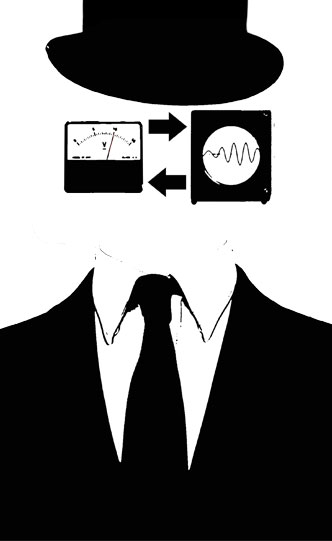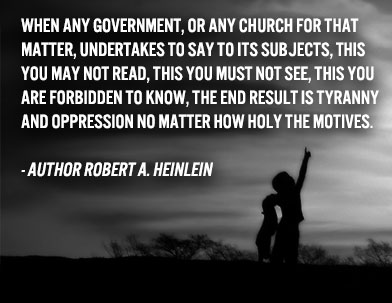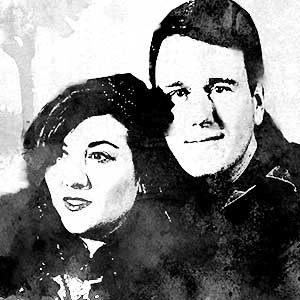Thoreau’s Walden Exposes Hollow Consumer Society
“Shall we always study to obtain more of these things, and not sometimes to be content with less?”
This short film takes a revealing look into our own lives. Short excerpts from Walden are juxtaposed with amazing visions of modern society – the vivid dreams and hollow fixtures of television-driven culture, Edward Bernays’ manipulated consumer world, built on advertising, propaganda, constant entertainment, cheap credit, perpetual debt and escapist illusions – all predicted by Henry David Thoreau in the mid-1800s, experimenting with life in the woods.
“Shall we always study to obtain more of these things, and not sometimes to be content with less?” Thoreau asks.
The American Dream is exposed as a Ponzi scheme based upon public facades and false images of success. As Thoreau rightly points out, men have become the tools of their tools, and have forgotten their higher purpose. Concentrated urban life, driven by technology, has replaced natural scenery; houses, cars, decorations, ornaments and possessions entrap their owners and reduce them to mere cogs in the system. Modern slavery continues in foreign factories shipping baubles to global destinations, where the latest fashions and distractions please busy 9-to-5 worker bees unaware of any larger purpose, without any sense of destiny.
“The false society of men —
— for earthly greatness
All heavenly comforts rarefies to air.”
Melissa Melton reads key passages from the Thoreau’s Walden, in the first chapter on Economy:
- “On the whole, I think that it cannot be maintained that dressing has in this or any country risen to the dignity of an art. At present men make shift to wear what they can get. Like shipwrecked sailors, they put on what they can find on the beach, and at a little distance, whether of space or time, laugh at each other’s masquerade. Every generation laughs at the old fashions, but follows religiously the new. We are amused at beholding the costume of Henry VIII, or Queen Elizabeth, as much as if it was that of the King and Queen of the Cannibal Islands. All costume off a man is pitiful or grotesque. It is only the serious eye peering from and the sincere life passed within it which restrain laughter and consecrate the costume of any people. When the soldier is hit by a cannonball, rags are as becoming as purple.”
- “The childish and savage taste of men and women for new patterns keeps how many shaking and squinting through kaleidoscopes that they may discover the particular figure which this generation requires today. The manufacturers have learned that this taste is merely whimsical. Of two patterns which differ only by a few threads more or less of a particular color, the one will be sold readily, the other lie on the shelf, though it frequently happens that after the lapse of a season the latter becomes the most fashionable. Comparatively, tattooing is not the hideous custom which it is called. It is not barbarous merely because the printing is skin-deep and unalterable.”
- “Shall we always study to obtain more of these things, and not sometimes to be content with less?”
- “Most men appear never to have considered what a house is, and are actually though needlessly poor all their lives because they think that they must have such a one as their neighbors have. As if one were to wear any sort of coat which the tailor might cut out for him, or, gradually leaving off palm-leaf hat or cap of woodchuck skin, complain of hard times because he could not afford to buy him a crown! It is possible to invent a house still more convenient and luxurious than we have, which yet all would admit that man could not afford to pay for. Shall we always study to obtain more of these things, and not sometimes to be content with less? Shall the respectable citizen thus gravely teach, by precept and example, the necessity of the young man’s providing a certain number of superfluous glow-shoes, and umbrellas, and empty guest chambers for empty guests, before he dies? Why should not our furniture be as simple as the Arab’s or the Indian’s? When I think of the benefactors of the race, whom we have apotheosized as messengers from heaven, bearers of divine gifts to man, I do not see in my mind any retinue at their heels, any carload of fashionable furniture. Or what if I were to allow — would it not be a singular allowance? — that our furniture should be more complex than the Arab’s, in proportion as we are morally and intellectually his superiors!”
- “At present our houses are cluttered and defiled with it, and a good housewife would sweep out the greater part into the dust hole, and not leave her morning’s work undone. Morning work! By the blushes of Aurora and the music of Memnon, what should be man’s morning work in this world? I had three pieces of limestone on my desk, but I was terrified to find that they required to be dusted daily, when the furniture of my mind was all undusted still, and threw them out the window in disgust. How, then, could I have a furnished house? I would rather sit in the open air, for no dust gathers on the grass, unless where man has broken ground.”
- “It is the luxurious and dissipated who set the fashions which the herd so diligently follow. The traveler who stops at the best houses, so called, soon discovers this, for the publicans presume him to be a Sardanapalus, and if he resigned himself to their tender mercies he would soon be completely emasculated. I think that in the railroad car we are inclined to spend more on luxury than on safety and convenience, and it threatens without attaining these to become no better than a modern drawing-room, with its divans, and ottomans, and sun-shades, and a hundred other oriental things, which we are taking west with us, invented for the ladies of the harem and the effeminate natives of the Celestial Empire, which Jonathan should be ashamed to know the names of. I would rather sit on a pumpkin and have it all to myself than be crowded on a velvet cushion. I would rather ride on earth in an ox cart, with a free circulation, than go to heaven in the fancy car of an excursion train and breathe a malaria all the way.”
- “The very simplicity and nakedness of man’s life in the primitive ages imply this advantage, at least, that they left him still but a sojourner in nature. When he was refreshed with food and sleep, he contemplated his journey again. He dwelt, as it were, in a tent in this world, and was either threading the valleys, or crossing the plains, or climbing the mountain-tops. But lo! men have become the tools of their tools. The man who independently plucked the fruits when he was hungry is become a farmer; and he who stood under a tree for shelter, a housekeeper. We now no longer camp as for a night, but have settled down on earth and forgotten heaven. We have adopted Christianity merely as an improved method of agri-culture. We have built for this world a family mansion, and for the next a family tomb. The best works of art are the expression of man’s struggle to free himself from this condition, but the effect of our art is merely to make this low state comfortable and that higher state to be forgotten.”
- “When I consider how our houses are built and paid for, or not paid for, and their internal economy managed and sustained, I wonder that the floor does not give way under the visitor while he is admiring the gewgaws upon the mantelpiece, and let him through into the cellar, to some solid and honest though earthy foundation. I cannot but perceive that this so-called rich and refined life is a thing jumped at, and I do not get on in the enjoyment of the fine arts which adorn it, my attention being wholly occupied with the jump; for I remember that the greatest genuine leap, due to human muscles alone, on record, is that of certain wandering Arabs, who are said to have cleared twenty-five feet on level ground. Without factitious support, man is sure to come to earth again beyond that distance. The first question which I am tempted to put to the proprietor of such great impropriety is, Who bolsters you? Are you one of the ninety-seven who fail, or the three who succeed? Answer me these questions, and then perhaps I may look at your bawbles and find them ornamental.”
- “The cart before the horse is neither beautiful nor useful. Before we can adorn our houses with beautiful objects the walls must be stripped, and our lives must be stripped, and beautiful housekeeping and beautiful living be laid for a foundation: now, a taste for the beautiful is most cultivated out of doors, where there is no house and no housekeeper.”
Read more from Walden.











